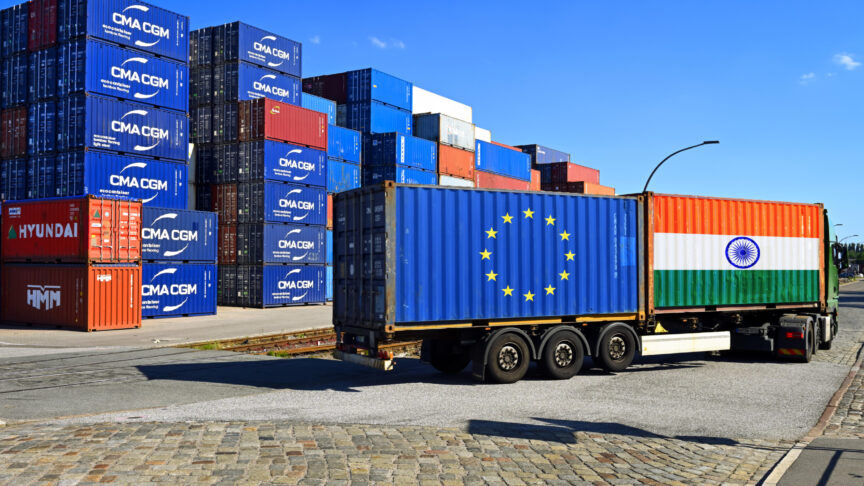Instrumental solidarity: Hungary’s management of the coronavirus crisis
The Orbán government’s demonstrations of European solidarity have been partly motivated by its nationalist goals and its concerns about migration.
According to the European Council on Foreign Relations’ new European Solidarity Tracker, Hungary has been among the top providers of solidarity since the onset of the coronavirus crisis in early March. The tracker – which records EU member states’ efforts to help one another deal with unexpected challenges arising from the pandemic – shows that Hungary has engaged in more individual acts of solidarity than any other country aside from France and Germany. Hungary’s seemingly strong commitment to supporting its European partners comes as a surprise, given the Orbán government’s memorable reluctance to show solidarity at the height of the migration crisis in 2015. However, Hungary’s actions have followed different patterns from those of the other frontrunners in the tracker – and its motivations appear to have been largely independent of the crisis.
The Hungarian government concluded early on that national responses to covid-19 worked best – as, in its view, the European Union was ineffective in coordinating the management of the crisis.
Whereas Germany and France have driven the development of joint European responses to the pandemic, Hungary has not. The Hungarian government concluded early on those national responses to covid-19 worked best – as, in its view, the European Union was ineffective in coordinating the management of the crisis. Budapest largely failed to acknowledge that the European Commission had done what it could by quickly relaxing budgetary rules to improve liquidity and by introducing tools such as the Temporary Framework for state aid. This is despite the fact that, as the European Solidarity Tracker shows, the Commission used the framework to approve around a dozen Hungarian state aid schemes, collectively worth more than €4 billion, by mid-June.
Across all 27 EU member states, acts of solidarity have generally concentrated on the countries most affected by the virus. The Hungarian government, too, showed solidarity by donating masks and protective equipment to Italy in April. Yet, as the tracker reveals, Hungary concentrated most of its other activities in its immediate neighbourhood. The reasons for this regional focus lie partly in the problems Hungary had to urgently address as the crisis unfolded, and partly in the Orbán government’s long-term goals.
In March, as EU member states began to close their borders, Budapest needed to quickly negotiate agreements that would allow Hungarians who had jobs in neighbouring countries and neighbouring countries’ citizens working in Hungary to continue commuting for work. The agreements Hungary reached on this issue were more than just neighbourly gestures; they were crucial to prevent further spikes in unemployment and thereby mitigate the economic fallout from the crisis for all sides. Hungary felt a particularly pressing need to reach agreements with Austria and Slovakia, where most Hungarians who commute across borders work.
At the same time, Budapest’s medical donations were primarily driven by priorities such as support for ethnic-Hungarian minorities in neighbouring countries and stability in the Balkans – both of which are independent of the coronavirus crisis. Pursuing a nationalist agenda, the Orbán government has long attached high importance to ethnic Hungarians in the region, whom it regards as part of the nation. Arguing that “every Hungarian is responsible for every Hungarian”, the government made donations of medical supplies that targeted these communities in neighbouring Romania, Slovakia, Slovenia, and Croatia, as well as countries outside the EU such as Serbia and Ukraine. By mid-June, these donations to ethnic-Hungarian communities amounted to 710,000 masks and other pieces of protective equipment.
Hungary’s approach has been somewhat controversial in countries with which it has strained relations, as shown by some Romanian media outlets’ description of it as “ethnic discrimination”. In neighbouring countries with which it has a relatively good relationship (such as Slovenia and Croatia), Hungary provided medical support not only to Hungarian communities but also to the wider population.
Hungary’s support for Slovenia and Croatia follows a similar logic to that for Serbia, North Macedonia, Montenegro, and Bosnia and Herzegovina (which, as they are outside the EU, do not show up in the tracker). Since the 2015 migration crisis, the Hungarian government’s approach to the Western Balkans has been dominated by the securitisation of the region as a key route for what it refers to as “illegal migration” towards the EU. This is why stability in the region is of the utmost importance for Hungary, and why the country pushes for Western Balkans states to join the EU irrespective of their commitment to democratic standards or broader preparedness for the move. In announcing Hungary’s donations to North Macedonia, Hungarian Foreign Minister Péter Szijjártó laid this out clearly, saying: “if these countries are weakened … their defence capacity will also be weaker. And if there is a big, illegal migratory pressure – which, unfortunately, has a chance – this country will not be able to resist it”. “It is in the interest of us Hungarians to have the line of effective defence against migratory pressure as far south as possible”, he added. Therefore, from the Hungarian government’s perspective, medical support to the Western Balkans is not only a gesture of solidarity but also an act of self-defence.
As the case of Hungary demonstrates, the European Solidarity Tracker reveals interesting patterns and raises important questions about member states’ behaviour in the crisis. Interpreting the data in its political context helps to understand these patterns and explain various actor’s motivations. In this case, while they are commendable in their own right, Hungary’s acts of solidarity have not been motivated by a sense of altruism alone. They have also been instrumental in furthering the government’s nationalist agenda in its neighbourhood.
Zsuzsanna Végh is an associate researcher of the European Council on Foreign Relations.
The European Council on Foreign Relations does not take collective positions. ECFR publications only represent the views of their individual authors.


